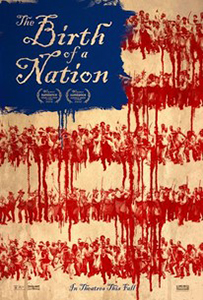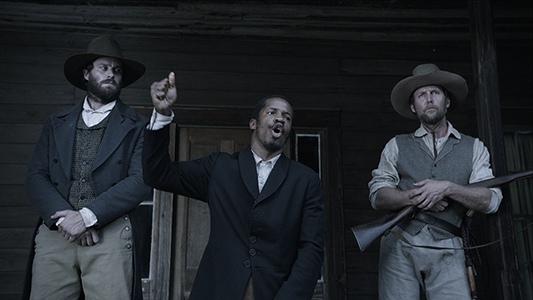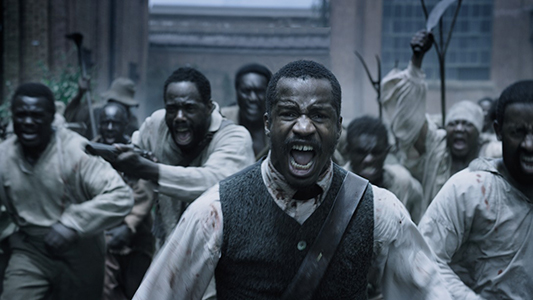“Art is not what you see, but what you make others see.”
– Edgar Degas
“Race is the great taboo in our society. We are afraid to talk about it. White folks fear their unspoken views will be deemed racist. People of color are filled with sorrow and rage at un-righted wrongs. Drowning in silence, we are brothers and sisters drowning each other.”
-Eva Paterson, CEO and co-founder of Equal Justice Society
It’s an odd thing to be a white male watching a film about slavery. While not impossible to empathize with the events on screen, it is difficult to fully grasp what it means to have such a thing imprinted on the collective culture of your identity.
Some would argue that events that occurred 153 years ago has little bearing on today. But this year we have watched individuals express their view that there is a separate America that the ethnic majority knows little about. Study after study after study has found a factual basis for the lingering effects of the institution of slavery. We listen to a potential Presidential candidate espouse racially-based language while being endorsed by white supremacist groups. This is not a secret world—-any white male who’s being honest will tell you they have had “that conversation” with another white male—-but it is one that the majority of us prefer not to face on a regular basis. But among us, there is still a minority that lives this daily occurrence of unspoken bias. Not believing something doesn’t make it not true. Sometimes you have to be forced to look, no matter how uncomfortable it makes you.
Set against the antebellum South, THE BIRTH OF A NATION follows Nat Turner, a literate slave and preacher, whose financially strained owner, Samuel Turner, accepts an offer to use Nat’s preaching to subdue unruly slaves. As he witnesses countless atrocities–against himself and his fellow slaves–Nat orchestrates an uprising in the hopes of leading his people to freedom. (Synopsis by Fox Searchlight)
There are two lenses through which to view this film. One is as a critic of the mechanics of the film; the writing, visuals, themes, etc. The other is as a critic of the film’s message. From a purely cinematic standpoint, Nate Parker does admirable work as a first time director. Much of the film is exceptionally well-filmed and balanced with the mood of the plot at each beat. The writing proves to be the downfall. There is a muddled interpretation of Samuel Turner’s motivations. He switches from kindly slave owner to abusive drunk for reasons that are never really clear, other than the need for something to be a catalyst for Nat Turner’s rebellion. Certain parts of the script seem to have been written for little reason other than to evoke a certain message about modern times. Commenting on the overall social message of the film via the script is not problematic per se, but it needs to contextually work within the characters who are expressing the view.
Given that the movie is more or less well constructed, its message becomes more important. It is fairly obvious that Nate Parker has a specific view on modern racial tensions that he is expressing through this film. By portraying the slave owning, white Turner family as sympathetic, the message Turner attempts to make it one of conversation rather than animosity. The problem is that his message gets muddled in the militancy of the film’s final act. While the rebellion needed to occur on screen at some point, the heavy-handed finality of Turner’s hanging invoking images of lynch mobs tosses aside the threads of conversation that were carefully cultivated earlier in the film. That doesn’t mean that the majority of Americans don’t need to have the graphic nature of our history put in front of them. But it doesn’t help bridge the gap and spark the conversation that needs to occur.
If we are going to talk about racism, we are going to have to recognize that it does exist, and that it impacts our communities in different ways. There are people among us that are so convinced that racism doesn’t exist or that they are superior because of their ethnicity that they are willing to send death threats to children rather than have a rational conversation about why these children feel the need to express themselves this way. These are the same people that will try and turn these conversations away from a film’s message and try to make it about celebrities, or patriotism, or literally anything else. They’ll obfuscate the meaning as if they have an inherent truer sense of what American freedoms are and should be based on their own place in society.
This same argument against bias from one side equally applies to the other. White America doesn’t get the luxury of pretending that racism doesn’t exist, but Nate Parker doesn’t get a pass for pushing the conversation further apart by framing his argument against a graphic rebellion and lynching. Someone has to back down first if we are going to move towards a solution. There was an opportunity here for Parker to have both an honest depiction of historical events, and have a softer conversation about what makes us all Americans. It doesn’t fully materialize.
This is a powerful film in a time when race relations, or at least the perception of their state, are trending downward. The value here is in putting aside preconceived bias and trying to understand these issues from a perspective that differs from your own. This film, like all art, has strength in its interpretation. That interpretation is different for everyone, even within your own demographic. Your opinion, in agreement or disagreement, does not make a fact, no matter how strongly you feel. You should watch this. Talk to the person beside you in the theater. Talk to your friends and family. Tell them what it meant to you and listen to what it means to them. The better world that we are all striving for will not exist without a collective ability to discuss and understand our problems.
“See It/ Rent It/ Skip It”: See it. Discuss it. Make a better world.
THREE STARS out of four.
Directed By: Nate Parker
Rated R for disturbing violent content, and some brief nudity.
Runtime: 1 hr. 59 min.






What a load of horse manure. There is no systematic racism against blacks today.
Jesus said, “If you were blind, you would not be guilty of sin; but now that you claim you can see, your guilt remains. John:9:41
or
There’s none so blind as those who will not listen.”
? Neil Gaiman, American Gods
“If you got a slave master or [Ku Klux] Klan in your blood, blacks can sense that,” he was quoted as saying. “That stuff lingers to this day. Just like Jews can sense Nazi blood and the Serbs can sense Croatian blood.” -Bob Dylan